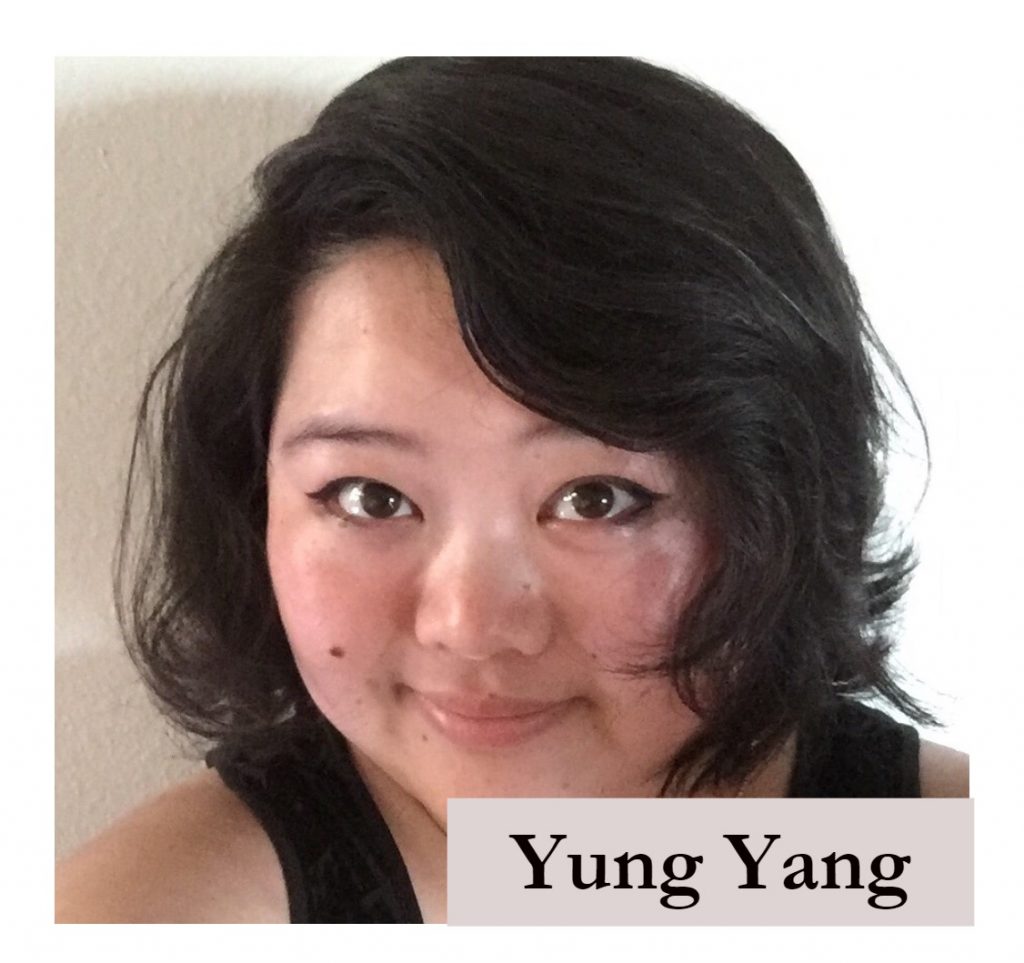
Yung is born in Taipei, Taiwan and considers herself a TBC, Taiwan Born Chinese. Yung lives in Sunny SoCal and loves dogs and horror. She discovered Legacies on Twitter and had her short horror comic, “The Tithe”, in The Strip Anthology published by Red Stylo Media.
Below are the responses from Yung Yang’s interview with Legacies Staff:
How did you get into illustrating or writing?
I started drawing from a very young age and I remember I sold my first drawing at 10, an old man gave me $10 and a stick of graphite for a landscape drawing I did on computer paper.
What inspired you to contribute to the project? (Why did you want to contribute to this project?)
I am very passionate about my identity as an Asian American and I really wanted to add my voice to it. I wanted to express the feeling I had growing up with such a strong cultural identity in a place where I was very obviously other and out of place. I experience racism and diaspora that perhaps others in a more diverse environment would not have.
How would you describe, or summarize, your submission?
I would describe it as the silhouette of the artist struggling to fit in between two separate identities.
What was the hardest things to write/draw about? (I.e. revisiting a trauma, self-realization, etc.) In other words, did you struggle to write/draw a certain aspect?
I struggled to condense my experience. I tried to pick out symbols that had meaning to me in each identity but they are so personal that I feel that they will be lost on the viewer.
Why did you choose to write/illustrate your specific submission? (What was the significance of your submission?)
I really wanted to express how strongly both parts of my identity are unique and at times incompatible in creating me as a person. Both are very distinctive so I wanted the styles to be unique to each identity. I used a paper cutout style for the Taiwanese side of my identity and American street art to represent the American side of me.
What, in your opinion, were setbacks you had to face, if any, and why? (I.e. time, memory, self-righteousness, etc.)
While growing up I was called every slur for an Asian in the book, that was from not only people who bullied me verbally and physically for being different, but from people I called my friends. I remember going home crying and telling my mother I didn’t want to be Chinese anymore and I even stopped speaking Chinese for a while because I was so ashamed of who I am. It is why I cling so passionately to my identity now because for a while I almost let it be beaten out of me.
Was there anything you couldn’t address in your submission? If so, what were they?
I’m honestly not sure. It’s such a complicated topic to condense into one image.
What were the most important things you wanted to hit on in your submission? (What did you want to highlight?)
I very much wanted to express the struggle I had in embodying both of the identities and the isolation that comes from feeling like I don’t quite fit into either.
What do you hope readers/people will gain from reading/seeing your work? (What do you want people to take away from your work?)
I hope that readers can feel even a bit of the beauty and heartbreak I find in both identities.
What is your definition of being AsAm, if you have one?
Being AsAm is the unique situation of being caught between two worlds for me. In America I feel very strongly Asian while in Asia I feel very strongly Western.
What does writing/illustrating for this anthology mean to you?
I am very passionate about my Asian identity and the diaspora I experienced growing up in a place with very few other Asians (Florida in the 80s). I really wanted to express some of the isolation I felt and the even more severe feeling of not belonging when I moved back to Taiwan for a period of time and felt like I didn’t belong there either.
What food/drink most reminds you of home/childhood? Why do you think food is so important to Asian American culture?
I think boba and beef noodle soup reminds me the most of home. I loved going to night markets as a child and I often miss the sensation of being carefree and with my family. I think food is a beautiful and unique way to convey culture and I think it’s one of the ways we get to keep a little bit of home with us while in a far away land
